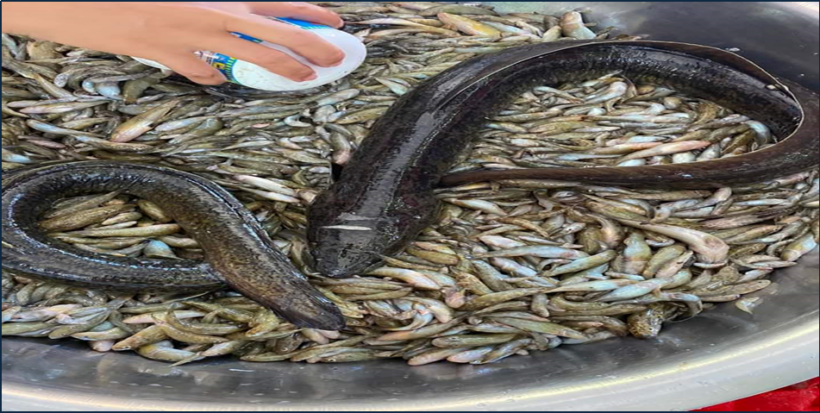by: Mark B. Libio
Nestled amidst the picturesque landscapes of the Cordillera Mountains, the Ibaloi people have long celebrated their rich cultural heritage through vibrant festivals. One such celebration, the Paedeng Festival, is a unique event that showcases the Ibaloi’s love for food, dance, music, and community. This article delves into the fascinating world of the Paedeng Festival, exploring its origins, traditions, and the significance it holds for the Ibaloi people.
A Gastronomic Delight
The Paedeng Festival derives its name from the “paedeng,” a small fish that is native to the Agno River. This humble fish takes center stage at the festival, where it is prepared in a variety of delicious dishes. From grilled to fried, stewed to smoked, the pae-deng is showcased in its many culinary forms. The festival is a feast for the senses, with aromatic spices, savory flavors, and the satisfying crunch of the fish. The Pae-deng Festival is more than just an annual event in Barangay Dalupirip; it is a vibrant cultural celebration that brings together the rich heritage and culinary traditions of the I-shalupirips, known for their joyful and communal spirit. Held every third week of March, this festival has evolved into a significant occasion, drawing both local tourists and community members to celebrate the unity and shared history of the people along the Agno River.

A deliciously cooked Paedeng (fish), wrapped in banana leaves ready to be savored at the festival.
The festival was first launched on March 16, 2012, during the Barangay Foundation Anniversary at the Barangay Covered Court in Dalupirip, Itogon, Benguet. It was formally recognized by the 7th municipal council through Ordinance No. 38, s. 2012, institutionalizing the event. However, the Pae-deng Festival faced challenges, such as the Agno River contamination in 2019 due to a tailing dam break, which led to the cancellation of the festival. The following year, the COVID-19 pandemic further disrupted its continuation. In response, the Barangay Council and the Dalupirip Community convened in October 2019, deciding unanimously to move the festival to Sitio Lawigen, Dalupirip, to be held annually on the first Saturday of May. This decision was strongly supported by resolutions from the local government, ensuring the festival’s resilience and continuity.
“Pae-deng” refers to one of the smallest fish found in the Agno River, traditionally caught in large numbers by the community. The festival celebrates this humble fish as a symbol of abundance and sustenance. Visitors to the Pae-deng Festival are treated to a variety of dishes where “pae-deng” takes center stage, often paired with indigenous foods like “ava” (boiled taro), camote, and delicacies made from cassava. These culinary delights, alongside the traditional “vat-vat” (meat from butchered pigs and cows), showcase the deep connection between the community’s cultural practices and their natural environment.
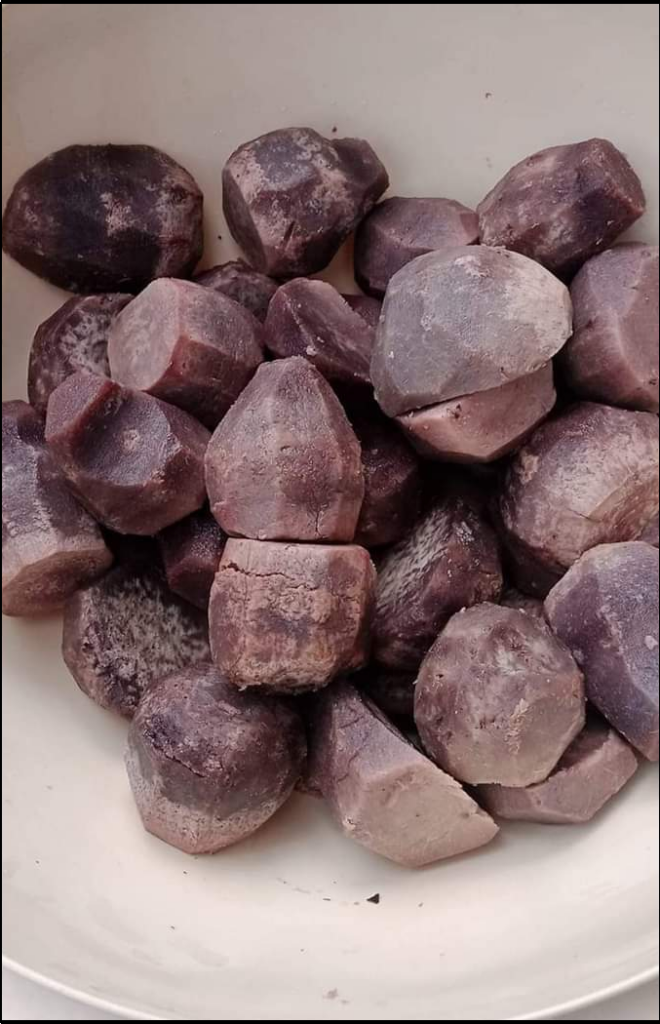
“ava” (boiled taro) paired with the paedeng (fish).

“vat-vat”/batbat/watwat (big chunks of meat from butchered pigs and cows) distributed to the festival attendees and non-attendees.
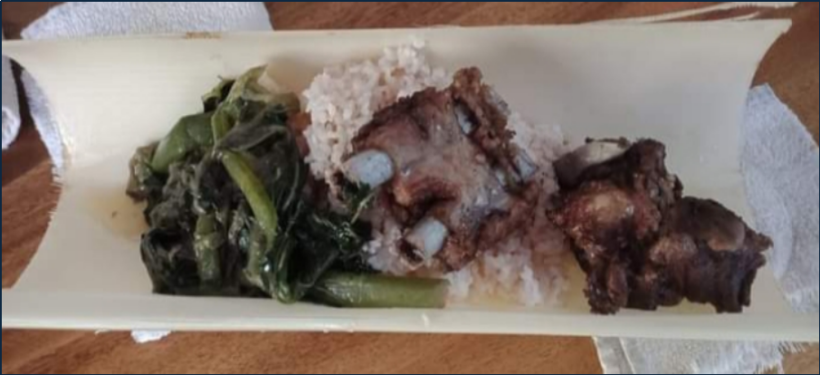
Cooked “vat-vat” distributed to the attendees.
A Cultural Extravaganza
The Pae-deng Festival is not just about food; it is a profound expression of the Ibaloi values of industry, cooperation, unity, and perseverance. The event features performances that highlight traditional livelihoods, especially fishing, with each act symbolizing the community’s collective effort and success. The festival is also a thanksgiving celebration, expressing gratitude for the bountiful harvest from the Agno River. Traditional dances, such as the “tayao,” performed with rhythmic movements to indigenous musical instruments, culminate in vibrant displays like “avang ni baboy” (catching of the pig) and “owik” (fastest kill), where representatives from various sitios compete, demonstrating their skills with passion and dedication.
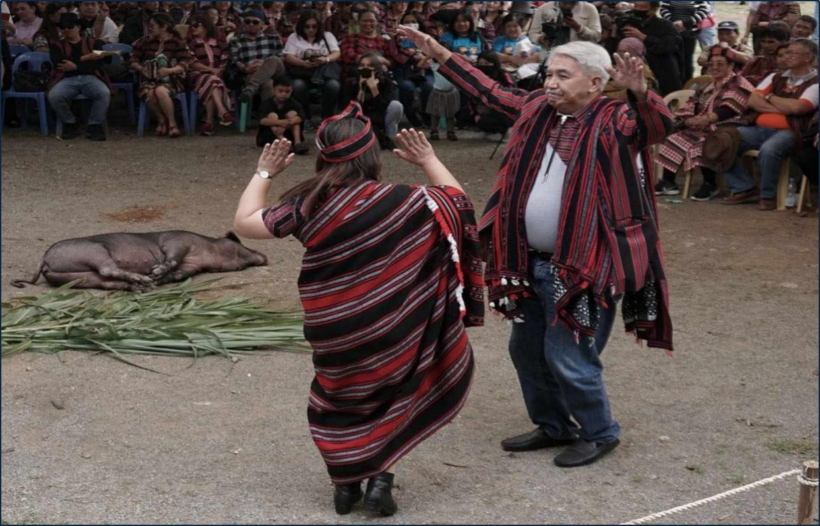
Ibaloi tayao/tayaw performed with a manedjaw (male dancer) and the maneshung (female dancer).

Owik: Ceremonial way of killing a pig, the beginning of the ritual feast.
Beyond these cultural expressions, the festival also includes a variety of other activities, such as the annual barangay pageantry, beautification contests, the Barangay Sports League, indigenous sports competitions, and exhibitions of local products and culture. These events not only entertain but also educate, preserve and promote the rich cultural heritage of Dalupirip.
In the context of the MATATAG curriculum of the Department of Education, the Pae-deng Festival serves as an excellent example of how cultural celebrations can be integrated into the educational landscape. The festival provides a platform for students to deepen their appreciation for the arts and cultural heritage. Through activities such as organizing an “Arts and Culture Fair,” students can explore and present the diverse traditions of their community, fostering cultural awareness and pride. This aligns with the United Nations Sustainable Development Goal (SDG) 4: Quality Education, specifically Target 4.7, which aims to ensure that all learners acquire the knowledge and skills needed to promote sustainable development, including through education for sustainable development and sustainable lifestyles, human rights, gender equality, promotion of a culture of peace and non-violence, global citizenship, and appreciation of cultural diversity. The corresponding indicator, 4.7.1, measures the extent to which education for global citizenship and education for sustainable development are mainstreamed at all levels in national education policies, curricula, teacher education, and student assessment.
Teachers are encouraged to indigenize lessons and contextualize the most essential learning competencies, making education relevant and meaningful, while also supporting these global educational goals.
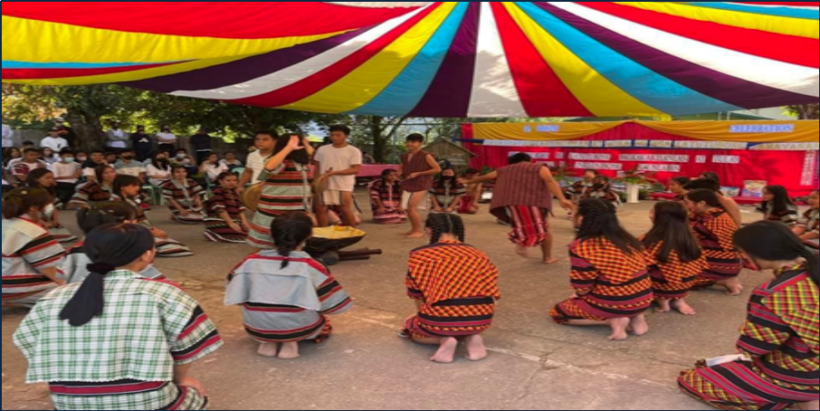
School Cultural Dance Presentation with the Paedeng Festival theme.
#PaedengFestival
#IndigenousDance
#SchoolPerformance
#CulturalHeritage
About the Author:
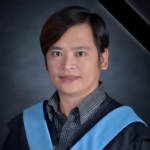
Mark B. Libio is a dedicated MAPEH coordinator, Science teacher, and faculty staff at Laurencio Fianza National High School. Awarded as the Itogon District Best MAPEH Teacher for three consecutive years, he mentors his colleagues in facilitating lessons using various instructional formats to address the diverse learning styles of students. As a mentor, he helps his colleagues understand and contextualize the most essential learning competencies to accommodate varying contexts, considering curriculum content and performance standards.
About the Editor:

Genevieve B. Kupang is a faculty member and the Dean of the Graduate School at Baguio Central University in Baguio City. She serves as BCU’s Representative for Internationalization and is a member of the Board of Directors of the Cordillera Association of International Relations Officers (CAIRO).


